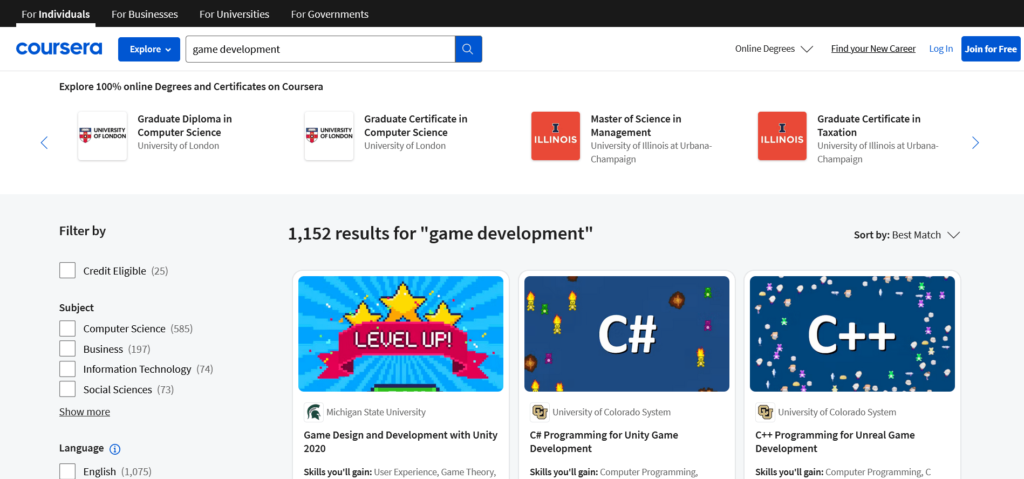Introduction
Are you passionate about both gaming and performance? Have you ever dreamed of lending your voice to the characters in your favorite video games? If so, you’re in the right place. “How to become a video game voice actor” is not just a question, but a journey waiting for you to embark on. In this article, we’ll delve into the exciting world of video game voice acting, exploring the steps, skills, and strategies necessary to make your mark in this competitive industry. So, if you’ve ever wondered how to become a video game voice actor, read on and discover the key to unlocking your potential in this thrilling realm of creativity and expression.
Understanding the Role of a Video Game Voice Actor
Before diving into the steps to becoming a video game voice actor, it’s crucial to grasp the nature of the role and the skills required. Video game voice actors breathe life into characters through their vocal performances, conveying emotions, personality traits, and narrative depth. They collaborate closely with developers, directors, and fellow voice actors to ensure the characters resonate with the audience and enhance the gaming experience.
Develop Your Voice Acting Skills
Mastering the art of voice acting is the cornerstone of success in this competitive field. Begin by exploring and refining your vocal range, versatility, and expression. Practice reading scripts aloud, experimenting with different tones, accents, and emotions to expand your repertoire. Consider enrolling in acting classes, workshops, or online courses specifically tailored to voice acting. These resources can provide valuable insights, feedback, and techniques to help you hone your craft.
Build a Diverse Voice Acting Portfolio
Creating a compelling voice acting portfolio is essential for showcasing your talent and versatility to potential clients and casting directors. Start by recording a variety of demo reels that highlight different aspects of your vocal abilities, such as character voices, accents, narration, and emotional range. Tailor your demos to reflect the specific demands of the video game industry, including character archetypes commonly found in games (e.g., heroes, villains, sidekicks). Ensure that your demos are professionally produced and polished to make a lasting impression on industry professionals.
Network within the Industry
Networking plays a crucial role in gaining visibility and accessing opportunities in the competitive world of voice acting. Attend industry events, conferences, and conventions related to video games, animation, and voice acting to connect with professionals and decision-makers. Join online communities, forums, and social media groups dedicated to voice acting and gaming to engage with like-minded individuals and stay updated on industry trends and opportunities. Cultivate genuine relationships with industry insiders, directors, and casting agents by demonstrating professionalism, enthusiasm, and a willingness to collaborate.
Seek Auditions and Casting Calls
Stay proactive in seeking auditions and casting calls for video game projects by regularly monitoring casting websites, online platforms, and talent agencies specializing in voice acting. Submit your demo reels and audition tapes for relevant roles that match your vocal skills and preferences. Tailor your submissions to showcase your understanding of the characters and the game’s aesthetic, tone, and narrative context. Be prepared for rejection and persistently pursue opportunities while continuously refining your craft and expanding your portfolio.
Embrace Continuous Learning and Improvement
The journey to becoming a successful video game voice actor is an ongoing process of learning, growth, and adaptation. Stay abreast of industry developments, emerging trends, and technological advancements shaping the landscape of video game voice acting. Continuously challenge yourself to expand your vocal range, refine your techniques, and explore new genres, styles, and character archetypes. Seek feedback from peers, mentors, and industry professionals to identify areas for improvement and refine your skills accordingly.

Top Online Education Platforms Where You Can Learn How to Become a Video Game Voice Actor?
In the dynamic world of video game development, the demand for skilled voice actors has skyrocketed. As gaming narratives become more intricate and immersive, developers seek voice actors who can breathe life into characters and captivate audiences. If you aspire to become a video game voice actor, mastering the craft is essential. Fortunately, there’s a plethora of online education platforms offering comprehensive courses tailored to help you achieve your goals. Let’s explore some of the top platforms where you can learn how to become a video game voice actor.
Udemy

Udemy is renowned for its extensive range of courses, and video game voice acting is no exception. With courses designed by industry professionals, Udemy offers a variety of classes covering everything from vocal techniques to character portrayal. Whether you’re a beginner or seeking advanced training, Udemy provides flexible learning options suitable for every skill level.
Coursera

Coursera partners with top universities and organizations to deliver high-quality educational content, including courses in video game voice acting. From understanding voice modulation to perfecting accents and dialects, Coursera’s courses provide comprehensive training to help you stand out in the competitive gaming industry. With flexible schedules and peer-reviewed assignments, Coursera offers a structured learning experience tailored to your needs.
Voiceover Kickstart
Voiceover Kickstart specializes in voice acting training, including courses specifically tailored for aspiring video game voice actors. Their curriculum focuses on building foundational skills, understanding character development, and mastering the nuances of emotive storytelling within the gaming industry. With personalized feedback and guidance from experienced instructors, Voiceover Kickstart ensures you’re equipped to excel in the competitive world of video game voice acting.
Skillshare

Skillshare offers a diverse array of courses curated by industry experts, making it an ideal platform for aspiring voice actors. Through Skillshare’s platform, you can access tutorials on vocal techniques, character interpretation, and the technical aspects of recording for video games. With a supportive community and hands-on projects, Skillshare empowers learners to refine their skills and embark on a rewarding career in video game voice acting.
Voices.com
Voices.com not only serves as a platform for connecting voice actors with clients but also offers valuable resources for honing your craft. Their educational resources include webinars, tutorials, and workshops specifically focused on video game voice acting. By leveraging Voices.com’s expertise and industry insights, you can sharpen your skills and showcase your talent to potential employers in the gaming industry.
Top 10 Questions and Answers About How to Become a Video Game Voice Actor?
In the dynamic world of video games, the voices behind characters play a crucial role in immersing players into the game’s narrative. If you’ve ever dreamed of lending your voice to iconic characters or bringing virtual worlds to life, becoming a video game voice actor might be the perfect path for you. To demystify this exciting career choice, we’ve compiled the answers to the top 10 most searched questions about how to become a video game voice actor.
1. What skills are required to become a video game voice actor?
Becoming a successful video game voice actor requires a blend of acting talent, vocal versatility, and technical proficiency. Strong acting skills are paramount, as you’ll need to convey emotion, personality, and depth through your voice alone. Additionally, the ability to adapt your voice to fit various characters and scenarios is crucial. Familiarity with recording equipment and techniques is also beneficial, as many auditions and sessions may be conducted remotely.
2. How do I get started in voice acting for video games?
Getting started in video game voice acting often begins with building a diverse voiceover portfolio. Take acting classes to hone your craft, practice voicing different characters and styles, and create a professional demo reel showcasing your versatility. Networking within the industry, attending voice over conferences, and joining online communities can also help you connect with casting directors and fellow voice actors.
3. What steps should I take to prepare for auditions?
Preparing for video game voice acting auditions involves researching the game’s genre, characters, and tone to understand the context of the role. Practice delivering lines with emotion and authenticity, paying attention to nuances such as pacing, intonation, and character motivations. Additionally, ensure your recording setup is professional-grade to deliver high-quality auditions.
4. Are there specific voice over techniques for video games?
While many voice over techniques apply across various mediums, video game voice acting often requires additional skills due to the interactive nature of games. Actors may need to record multiple variations of lines to accommodate different player choices or outcomes. The ability to perform efforts, such as grunts, screams, and battle cries convincingly, is also essential for many video game roles.
5. How can I find video game voice acting auditions?
Finding video game voice acting auditions can be challenging but not impossible. Keep an eye on casting websites, social media platforms, and industry forums for audition notices and opportunities. Building relationships with casting directors and agents can also lead to audition invitations. Additionally, consider creating an account on online voice over marketplaces where developers and studios post casting calls for voice actors.
6. What are some common misconceptions about video game voice acting?
One common misconception about video game voice acting is that it’s solely about having a unique voice. While distinctive voices can certainly stand out, the ability to act convincingly and breathe life into characters is paramount. Additionally, some may underestimate the technical aspect of voice recording, assuming that talent alone is sufficient without considering the importance of sound quality and professionalism.
7. Are there any formal qualifications required to become a video game voice actor?
Unlike some professions, video game voice acting doesn’t necessarily require formal qualifications or degrees. However, training and education in acting, improvisation, and voice over techniques can provide valuable skills and increase your chances of success. Many successful voice actors come from diverse backgrounds, ranging from theater and film to comedy and radio.
8. How do I build a successful career as a video game voice actor?
Building a successful career as a video game voice actor requires perseverance, dedication, and a proactive approach. Continuously hone your craft through training, workshops, and practice. Stay informed about industry trends and developments, and be open to feedback and constructive criticism. Building a strong online presence through social media and a professional website can also help showcase your talent to potential clients and collaborators.
9. What are the challenges of being a video game voice actor?
Like any creative profession, video game voice acting comes with its challenges. Competition can be fierce, and rejection is a common part of the audition process. Additionally, the nature of video game development means projects can be subject to delays or cancellations, impacting voice actors’ work schedules. However, overcoming these challenges with resilience and determination can lead to rewarding opportunities and career growth.
10. How can I stay motivated on my journey to becoming a video game voice actor?
Staying motivated on the path to becoming a video game voice actor requires passion, persistence, and a supportive network. Surround yourself with fellow creatives who share your enthusiasm and aspirations, and celebrate each milestone and achievement along the way. Remember that every audition, whether successful or not, is an opportunity to learn and grow as an artist. Stay focused on your goals, and let your passion for storytelling and character bring you closer to realizing your dreams in the vibrant world of video game voice acting.
Top 10 Questions and Answers for Video Game Voice Actor Job Interview
By familiarizing yourself with these top 10 questions and crafting thoughtful responses, you’ll be well-equipped to ace your next video game voice actor job interview. Remember to showcase your unique talents, passion for the craft, and readiness to embark on an exciting journey in the realm of digital storytelling.
1. Can you tell us about your experience in voice acting, particularly in the realm of video games?
This question allows you to showcase your relevant experience. Highlight any previous roles in video games or voice acting projects. Discuss specific characters you’ve portrayed and the skills you’ve honed, such as versatility in voice modulation, emotive delivery, and character development.
2. What draws you to the world of video game voice acting?
Express your passion for gaming and how it intertwines with your love for acting. Discuss the unique opportunity video game voice acting offers to bring characters to life in immersive digital worlds and engage with players on a profound level.
3. How do you approach character development for video game roles?
Demonstrate your creative process by discussing how you analyze character backgrounds, motivations, and traits to breathe life into your performances. Emphasize your ability to adapt to diverse character archetypes and bring authenticity to each role.
4. What techniques do you use to maintain vocal health during long recording sessions?
Highlight your professionalism by discussing vocal warm-up exercises, hydration practices, and vocal rest strategies. Show that you prioritize vocal health to ensure consistent and high-quality performances throughout recording sessions.
5. Can you provide an example of a challenging character you’ve portrayed and how you overcame obstacles in voicing them?
Share a specific example that illustrates your versatility and problem-solving skills. Discuss how you approached the character’s unique voice, personality traits, and any hurdles you encountered during the process, showcasing your adaptability and resilience.
6. How do you handle direction and feedback from directors or game developers?
Highlight your collaborative nature by discussing your receptiveness to direction and feedback. Emphasize your ability to interpret and implement notes effectively while maintaining the integrity of your performance, fostering a productive working relationship with the creative team.
7. What do you believe sets apart a memorable video game voice performance from an average one?
Illustrate your understanding of impactful voice acting by discussing the importance of emotional depth, authenticity, and connection with the audience. Highlight your commitment to delivering performances that resonate with players and enhance their gaming experience.
8. How do you stay updated with industry trends and emerging techniques in video game voice acting?
Demonstrate your dedication to continuous improvement by discussing your engagement with industry resources, workshops, and networking opportunities. Showcase your eagerness to evolve as a voice actor and stay ahead of industry developments.
9. Can you share your approach to auditioning for video game roles?
Discuss your audition preparation process, including script analysis, character research, and vocal experimentation. Highlight your ability to capture the essence of a character and make bold choices that set you apart in auditions.
10. What do you hope to contribute to our project as a video game voice actor?
Express your enthusiasm for the specific project and articulate how your skills, experience, and passion align with its creative vision. Demonstrate your commitment to delivering compelling performances that elevate the game’s narrative and immerse players in its world.
Two Example Resumes for a Video Game Voice Actor With Different Levels of Experience
Resume Example 1: Entry-Level Video Game Voice Actor
[Your Name]
[Your Contact Information]
Professional Summary: Aspiring video game voice actor with a passion for bringing characters to life through dynamic and authentic performances. Eager to leverage training in acting and voiceover techniques to contribute to immersive gaming experiences. Possesses strong communication skills and a willingness to collaborate with directors and fellow voice actors to achieve project goals.
Experience:
Voice Acting Intern XYZ Studios, Los Angeles, CA June 2023 – August 2023
- Assisted senior voice actors in studio sessions, observing and learning voiceover techniques and best practices.
- Participated in script readings and character analysis sessions to understand the nuances of character portrayal.
- Provided voice samples for auditions and received constructive feedback from industry professionals.
- Assisted in administrative tasks such as scheduling studio sessions and organizing script revisions.
Education:
Bachelor of Arts in Theater Arts ABC University, Los Angeles, CA Expected Graduation: May 2024
Skills:
- Basic understanding of voice acting techniques and industry standards
- Strong vocal range and ability to modulate voice for different characters
- Excellent communication and collaboration skills
- Proficient in script analysis and character development
Resume Example 2: Experienced Video Game Voice Actor
[Your Name]
[Your Contact Information]
Professional Summary: Seasoned video game voice actor with a proven track record of delivering captivating performances across a variety of genres. With over 8 years of experience, adept at interpreting complex characters and bringing them to life with authenticity and emotion. Skilled in collaborating with directors, writers, and fellow voice actors to create memorable gaming experiences that resonate with audiences.
Experience:
Lead Voice Actor XYZ Games, San Francisco, CA January 2016 – Present
- Provided voice-over for lead characters in several successful video game titles, including AAA productions and indie projects.
- Worked closely with directors and writers to understand character motivations, story arcs, and game mechanics.
- Demonstrated versatility by portraying characters of different ages, genders, and backgrounds, ensuring diversity and inclusivity in game narratives.
- Recorded and edited voice tracks with precision to meet project deadlines and quality standards.
- Mentored junior voice actors and provided guidance on performance techniques and industry practices.
Education:
Bachelor of Fine Arts in Acting ABC University, Los Angeles, CA Graduated: May 2015
Skills:
- Extensive experience in voice acting across various video game genres
- Proficient in vocal modulation, accents, and character development
- Strong collaborative skills and ability to work effectively in a team environment
- Experienced in using professional voice recording and editing software
Conclusion
In conclusion, becoming a video game voice actor is an attainable goal with the right combination of dedication, talent, and strategy. By following the steps outlined in this article, you can set yourself on the path to success in this dynamic and rewarding field. Remember, how to become a video game voice actor is not just about landing roles, but about honing your craft, building relationships, and continuously improving. So, keep practicing, keep networking, and keep pursuing your passion for bringing characters to life in the immersive world of gaming.














